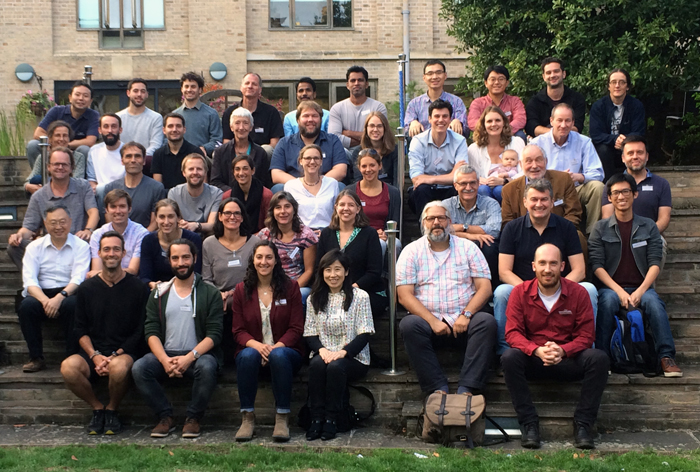
 coas.oregonstate.edu
coas.oregonstate.edu
PAGES' Ocean Circulation and Carbon Cycling (OC3) working group will hold a meeting, titled "Ocean circulation and carbon cycling during the last deglaciation: global synthesis" from 6-9 September 2018 in Cambridge, UK.
Venue
Magdalene College
Cambridge University
Cambridge, UK
Logistics
This workshop is open but limited to 40 participants. This will be the third and final OC3 meeting, focusing on the global synthesis of benthic carbon isotope data by merging the regional syntheses and analysis and comparison with other data and models.
Description
Earth’s climatic transition from the Last Glacial Maximum (LGM) to the Holocene is still not fully understood. The associated rise in atmospheric CO2 remains unexplained although it is important for the global warming. Ocean circulation also changed during the deglaciation and have been linked to the rates of CO2 increase. However, the exact mechanism of that link is unclear and quantifying changes in the ocean’s circulation and carbon storage remain challenging tasks.
This workshop will contribute to making progress through new regional syntheses of carbon isotope data throughout the last deglaciation. The data syntheses will be compared to other paleoclimate proxy reconstructions and isotope enabled model simulations in order to answer the following questions:
- When, at what depths, and by how much did carbon isotopes start to change after the LGM in the Atlantic, Pacific, Indian, and Southern Oceans?
- What do these changes imply about ocean circulation?
- How much did the Atlantic Meridional Overturning Circulation (AMOC) decrease during Heinrich Stadial 1 (HS1)? Was it only weakened or completely shut-down?
- Are carbon isotopes consistent with the idea that an AMOC shutdown weakened the biological pump and triggered the initial CO2 rise during HS1?
- If a weakened AMOC triggered rising CO2 during HS1 and the YD, then why did CO2 remain high once the AMOC was reinvigorated during the subsequent Bolling-Allerod stay constant?
- If the biological pump played an important role in mediating CO2 during the last deglaciation, then what cause the overall decline in atmospheric 14C?
- What caused the CO2 rise during the final phases of the deglaciation?
- What role did changes in the Southern Ocean and North Pacific play?
Workshop objectives
Objectives of the workshop are to:
- bring together sea-going paleoceanographers, modelers, and database managers
- discuss results from regional data syntheses
- create global synthesis of benthic carbon isotope measurements
- analyze the global synthesis, compare it with other paleoclimate data and models
- draft manuscripts describing the synthesis and analyses suitable for publication
- discuss what advances need to be made beyond this compilation.
OC3’s overarching goal is to synthesize foraminiferal carbon isotope (13C) data and compare them with model simulations in order to better understand past changes in ocean circulation and carbon cycling. OC3 focusses on the last deglaciation but considers all time periods. 13C is routinely measured on shells of fossil benthic (deep dwelling) and planktonic (near surface) foraminifera and has been used for a long time as a proxy to infer both carbon cycling as well as deep ocean circulation in the past.
During the previous two workshops a strategy for the data synthesis has been developed and regional syntheses for the Pacific, for the North Atlantic, and for the South Atlantic are currently under construction. We expect the regional syntheses to be completed by summer 2018.
Financial support
PAGES has provided funding for this workshop, preferentially for early-career researchers and those from developing countries. If you would like to request travel support please contact meeting organizer, Andreas Schmittner (also sending your abstract) by 8 June. You will receive a response indicating the level of support by 15 June.
Abstracts
Abstract submission deadline has been extended to 8 June. Emails to Andreas Schmittner.
Further information
Contact organizer Andreas Schmittner at the College of Earth, Ocean, and Atmospheric Sciences at Oregon State University: aschmitt@coas.oregonstate.edu
or go to the working group's external website: http://people.oregonstate.edu/~schmita2/Projects/OC3
Post-meeting material
> Summary and outlook (breackout_group_working_plan.pdf)
|
|
|
Workshop participants in Cambridge. |
